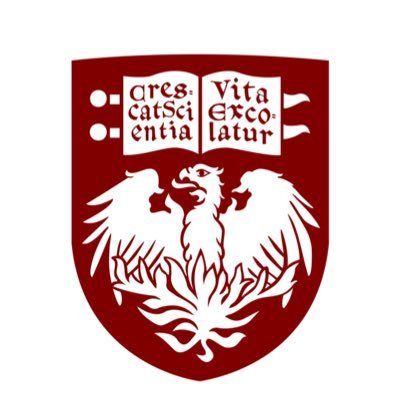Request Demo
Last update 08 May 2025
Abortion, Incomplete
Last update 08 May 2025
Basic Info
Synonyms Abortion spontaneous incomplete, Abortion spontaneous incomplete NOS, Abortion, Incomplete + [25] |
Introduction Premature loss of PREGNANCY in which not all the products of CONCEPTION have been expelled. |
Related
46
Clinical Trials associated with Abortion, IncompleteACTRN12624001463561
Comparison of misoprostol and conservative approach for managing first trimester retained products of conception and use of ultrasound to predict success– an open labelled randomized controlled trial
Start Date06 Feb 2025 |
Sponsor / Collaborator |
NCT06456164
IntraCERvical Balloon Catheter in the Setting of Induction of Labor for Fetal Loss or Abortion (CERBI): a Pilot Randomized Controlled Trial
The goal of this research is to understand whether it is practical and safe to use an intracervical balloon catheter in addition to standard of care medications at the time of an induction of labor for an abortion or fetal death. The medical device used in this study is cleared by the Food and Drug Administration (FDA) and is used for induction of labor at term gestational ages (at or above 37 weeks of gestation). The study team will also collect data about patient-level experiences with the procedure, time in labor, and labor-related complications, such as higher-than-expected blood loss or infection.
Start Date01 Feb 2025 |
Sponsor / Collaborator |
PACTR202409853980242
Comparing 2%Lignocaine and 2%Lignocaine with Hyoscine Butylbromide in Pain Reduction During Manual Vacuum Aspiration For Incomplete Abortion in Juth
Start Date01 Jun 2024 |
Sponsor / Collaborator- |
100 Clinical Results associated with Abortion, Incomplete
Login to view more data
100 Translational Medicine associated with Abortion, Incomplete
Login to view more data
0 Patents (Medical) associated with Abortion, Incomplete
Login to view more data
849
Literatures (Medical) associated with Abortion, Incomplete01 May 2025·Radiology Case Reports
An unsuspected case of uterine arteriovenous malformation with nidus aneurysm following vaginal delivery: Diagnostic challenges and management
Article
Author: Ps, Abhiram ; Chavadi, Chanabasappa V ; Nautiyal, Aakanksha
01 Apr 2025·Contraception
Change in hCG levels after very early medication abortion for pregnancy of unknown location or probable intrauterine pregnancy
Article
Author: Cederblad, Kristina ; Kopp-Kallner, Helena ; Jar-Allah, Tagrid ; Heikinheimo, Oskari ; Gyllenberg, Frida ; Hognert, Helena ; Brandell, Karin ; Gemzell-Danielsson, Kristina ; Kaislasuo, Janina
11 Mar 2025·Cureus
Characteristics and Diagnostic Accuracy of Retained Products of Conception After Delivery vs. Abortion: A Retrospective Cohort Study
Article
Author: Sgayer, Inshirah ; Kalendaryov, Alex ; Lowenstein, Lior ; Mustafa Mikhail, Susana ; Aiob, Ala ; Sharon, Avishalom
1
News (Medical) associated with Abortion, Incomplete06 Nov 2024
WEDNESDAY, Nov. 6, 2024 -- For complete
abortion
, medication abortion before confirmed intrauterine pregnancy is noninferior to standard, delayed treatment, according to a study published in the Nov. 7 issue of the
New England Journal of Medicine
.
Karin Brandell, M.D., from the Karolinska Institutet in Stockholm, and colleagues conducted a multicenter, noninferiority, randomized controlled trial involving women requesting medication abortion at up to 42 days of gestation with an unconfirmed intrauterine pregnancy on ultrasound examination. Participants were randomly assigned to immediate start of abortion (early-start group; 754 participants) or standard-care treatment delayed until intrauterine pregnancy was confirmed (standard-care group; 750 participants). For the absolute between-group difference, the noninferiority margin was set at 3.0 percentage points.
The researchers found that a complete abortion occurred in 95.2 and 95.3 percent of participants in the early-start and standard groups, respectively (absolute between-group difference, −0.1 percentage points). Ectopic pregnancies occurred in 1.3 and 0.8 percent of participants in the early-start and standard-care groups, respectively. Serious adverse events occurred in 1.6 and 0.7 percent of participants in the early-start and standard groups, respectively, most of which were uncomplicated hospitalizations for ectopic pregnancy or incomplete abortion.
"We found that early start of medication abortion before confirmed intrauterine pregnancy was noninferior to delayed treatment after confirmed intrauterine pregnancy with respect to completing abortion," the authors write.
Clinical ResultClinical Study
Analysis
Perform a panoramic analysis of this field.
login
or

AI Agents Built for Biopharma Breakthroughs
Accelerate discovery. Empower decisions. Transform outcomes.
Get started for free today!
Accelerate Strategic R&D decision making with Synapse, PatSnap’s AI-powered Connected Innovation Intelligence Platform Built for Life Sciences Professionals.
Start your data trial now!
Synapse data is also accessible to external entities via APIs or data packages. Empower better decisions with the latest in pharmaceutical intelligence.
Bio
Bio Sequences Search & Analysis
Sign up for free
Chemical
Chemical Structures Search & Analysis
Sign up for free

